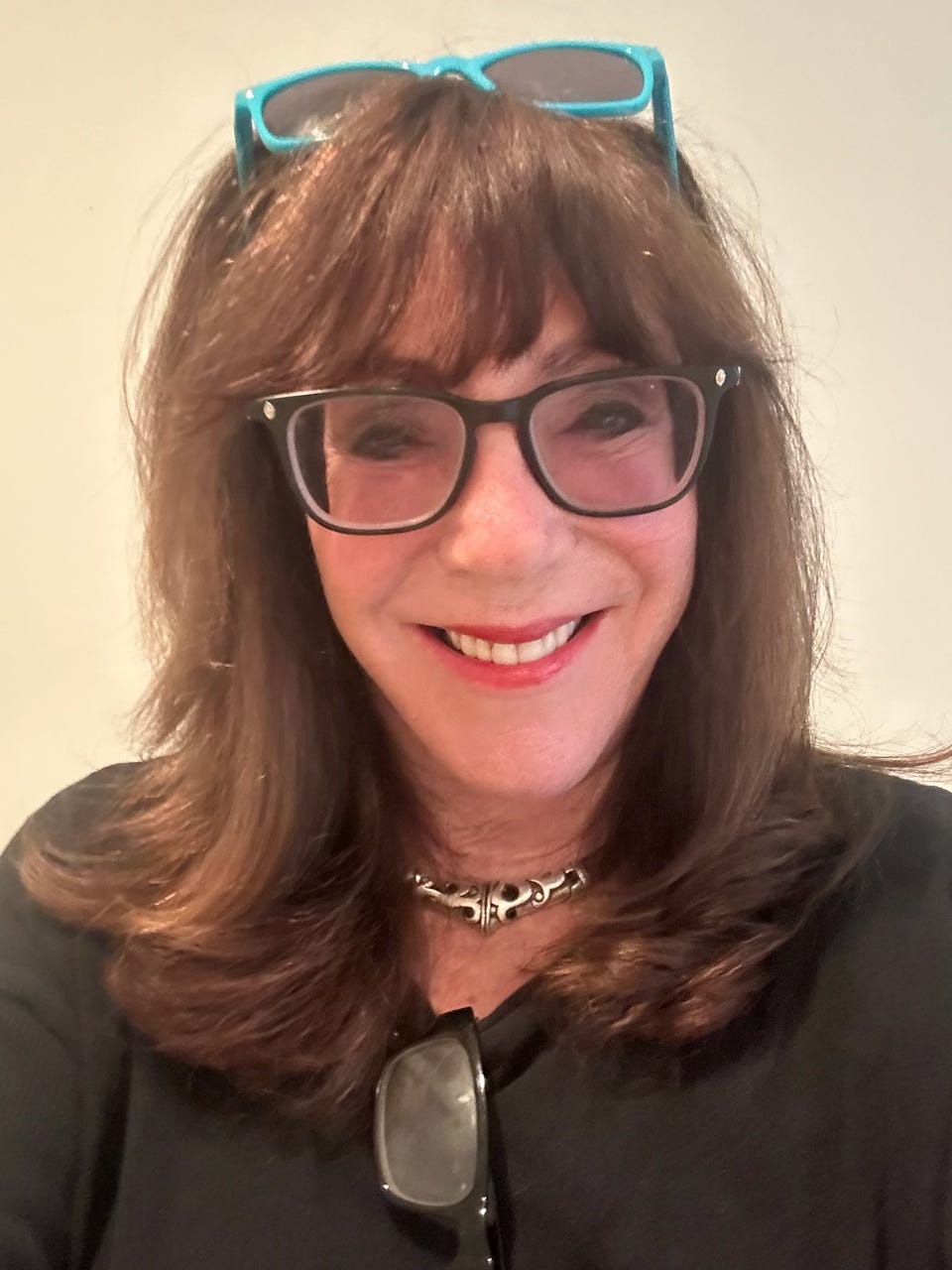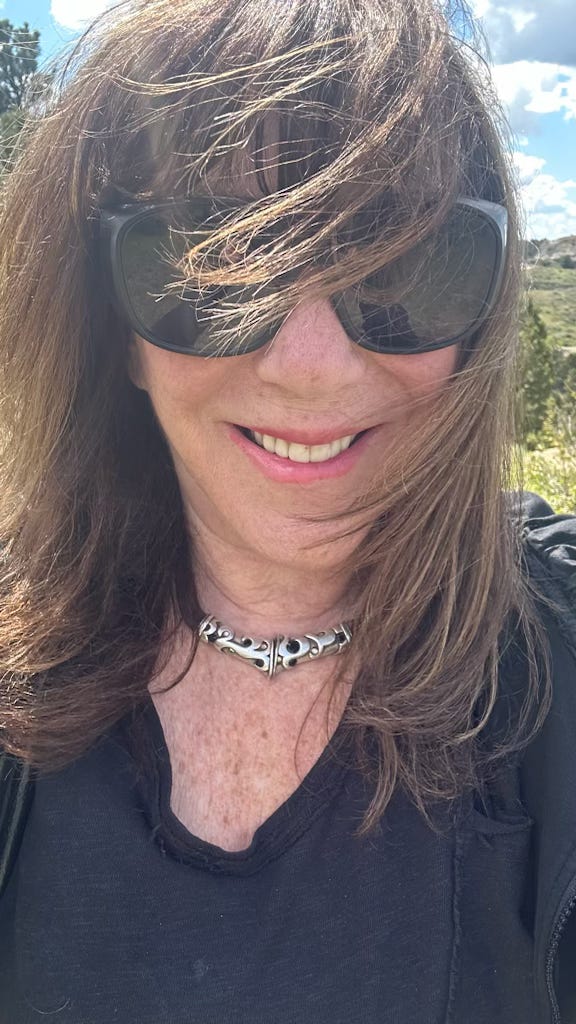I am missing my soft eyes.
I had my eyes done a week ago. No not that. I've actually had upper and lower blepharoplasty before. This operation was on my eyeballs, not my eyelids... not so I could look better, but so that I can see with near perfect vision.
Last Sunday, I travelled three hours from my home in Glendive, to the "big city" - Billings, Montana --- to get long awaited cataract surgery. I love Billings. It's clearly part of the American West, with ridge rocks, cowboys and rodeos, but it also has an urban vibe- a great downtown with restaurants, hotels, book stores and theaters.
And it has a world class medical center.
I chose to have the surgery done here, despite my children's and friend's skepticism that I could get good medical care anywhere other than the east coast bastions of academic medicine. Just one example of regional misunderstandings I'd been gathering since making my home in Eastern Montana instead of Boston or Philadelphia. I had been needing the surgery for a a couple of years now, as my vision became increasingly incorrectacble due to the growing clouds covering my eyeballs. I had had the surgery scheduled for the last week in March, but in typical Montana fashion, there was a blizzard the day before surgery and there was no getting down I-94. It was rescheduled for third week in May.
So it was with some anxiety and a whole lot of relief that I stayed in the historic Northern Hotel in downtown Billings Sunday night to be ready to present myself at the Vance Thompson Eye Center at 7:00 AM at Monday morning. This center offers a program for eligible patients in which the evaluation and surgery can be done in two successive days, with all follow up care provided by a local eye doctor. This is particularly attractive to those people who live hours from Billings and have to incur travel and hotel expenses for most medical procedures.
Monday morning was spent having my eyes evaluated by the latest in ophthalmological technology. I felt an overwhelming sense of gratitude for being alive at this moment in time with such medical advances available to me. After the exams, I met with an ophthalmologist who approved me for the two day surgery and outlined my choices for lens implants. I was presented with three options then left alone for a few minutes to make a decision which would affect not only my bank account but my vision for the rest of my life.
I could opt for the monofocal lens, which would correct for distance and I would need glasses for intermediate and close work. That option would be covered by Medicare. Or I could upgrade to two other possible lenses -- one which would be dual focused -- correcting for distance and intermediate vision, or one that would be tri-focused-- with corrections for all three.
The price was steep and there was no difference in cost between the two upgraded options.
After strutting and fretting my time in the exam room, I made the decision to go with the tri-focal lens. That was the hardest part of the ordeal.
Everything else was easy. The prep for the surgery ( some kind of numbing agent and anesthesia that left me in a dreamy state), the surgery itself which I don't remember but only took eight minutes, and the recovery which I am still going through a week later, as I write this.
It has been a surprisingly moving experience - to have near perfect vision all the time, after living with severe myopia from the time I was nine years old and creeping hyperopia which descended upon me at age forty.
One question that's emerged is what to do with the collection of eye glasses I have accumulated over the years? There's my distance glasses, my progressives, my prescription sun glasses, countless pairs of reading glasses at just about every power and a collection of gas permeable contact lenses which I have worn since I was nineteen. ( I did see a collection box for used glasses at my optometrist's office and I will be donating mine once I am convinced I will never need them again.)
Adapting to not having to wear corrective lenses has been the easy part.
What has been harder has been to adapt to having near perfect vision, all the time.
I first experienced the extreme discomfort the morning after the second eye was done and both my eyes were corrected. When I opened my eyes in the morning, I was shocked by how clear everything looked. The light was very bright and there were sharp edges outlining everything! People and objects had defined dimensions and a solidity about them I'd never noticed before.
More real? Surreal?
It was too much for me. I had to close my eyes and let my inner vision take over.
It took me a few days to understand what was happening -- and this is something I have never heard anyone who has had cataract surgery talk about -- I was missing my "bad vision."
For most of my life, at the end of each day, I could remove my glasses or contact lenses and retreat into my blurry fog-like, uncorrected vision. And I'd feel safe in my bed in my fogginess -- a sweet transition between being fully aware of my physical surroundings to entering my inner dreamworld.
I missed my soft eyes in the bright light of morning, when I could no longer languish in the peaceful haziness of my seventy year old vision before voluntarily getting the world into focus with glasses or contact lenses. At night, I still feel very strange, climbing into bed with perfect vision; I hear a nagging voice inside of me reminding me to make sure to take my lenses out as I have done before bed for over 50 years.
I had not realized until now how much I had needed those uncorrected moments of cloudy uncertainty and vagueness.
There is so much to be gained by cataract surgery. And I am not sorry I did it, and I am not sorry I opted for the upgraded lenses to grant me near perfect vision.
But I have never heard anyone talk about what is lost and what that might mean.
So much of this is about fighting the vicissitudes of aging. Hearing aids are next on my list, in addition to cosmetic dentistry, cosmetic surgery, hair coloring and getting any new future body parts I might need to replace.
I wasn't until I experienced waking up without my morning fog that I started contemplating what I may have lost by giving into fighting the natural aging process.
After all, as Oedipus teaches us, the loss of outer vision is often the beginning of one's journey to inward to deep knowledge and insight. Then too, think of all the famous artists who struggled with their physical vision -- Monet had cataracts, Degas had retinopathy, O'Keefe, macular degeneration and Van Gogh had glaucoma. What role might their respective eye diseases and disorders have contributed to their unique visions of the material world and their innovations in the history of painting?
My curiosity led me to an inquiry into the etymology of the word "cataract." Turns out, it comes from the Greek καταρράκτης and the Latin cataracta - both meaning waterfall. Seems to ancient peoples, the cloudy substance covering the aging eye looked like water.
There's also been a long history of cataract removal, starting in the 5th century BC. Ancient Egyptians and Indians engaged in "couching" - a surgical practice in which the cataract was moved outside of the line of vision with a needle. This would improve vision temporarily, but often resulted in blindness due to unsterile conditions. Subsequent developments in cataract removal and lens implantation over the past several centuries made cataract surgery one of the most successful surgeries in all of medicine. On the horizon? Adjustable lens technology in which the implanted lens can be altered post operatively through lasers to offer even more perfect vision.
One week, post op, with my vision becoming sharper and clearer every day. I am told the rings I see around light at night will fade also as my eyes heal and adjust to the three point lens that is implanted in my eyes.
I look forward to that, of course. The trajectory towards clearer vision. But I am less sanguine about it and a little more philosophical.
There is a correlation between the failures of our aging physical bodies and our development of humility. Humility is the awareness that our individual talents and abilities alone are inadequate to the tasks that we face. In our humility, we seeks others' perspectives and thereby we deepen and expand or knowledge.
In short, with the fading of our outer vision, with the humbling loss of clarity and certainty, we have the opportunity to become wise.
It's going to be a little harder to do that now. Harder to remember that even with 20/20 vision, I will still need to "soften" my eyes and turn them inward.
Have you had cataract surgery? What has your experience been like with suddenly having great eyesight? I'd love to hear your thoughts!
* before and after pictures below
before - my plethora of eyewear
after - industrial strength sun glasses





